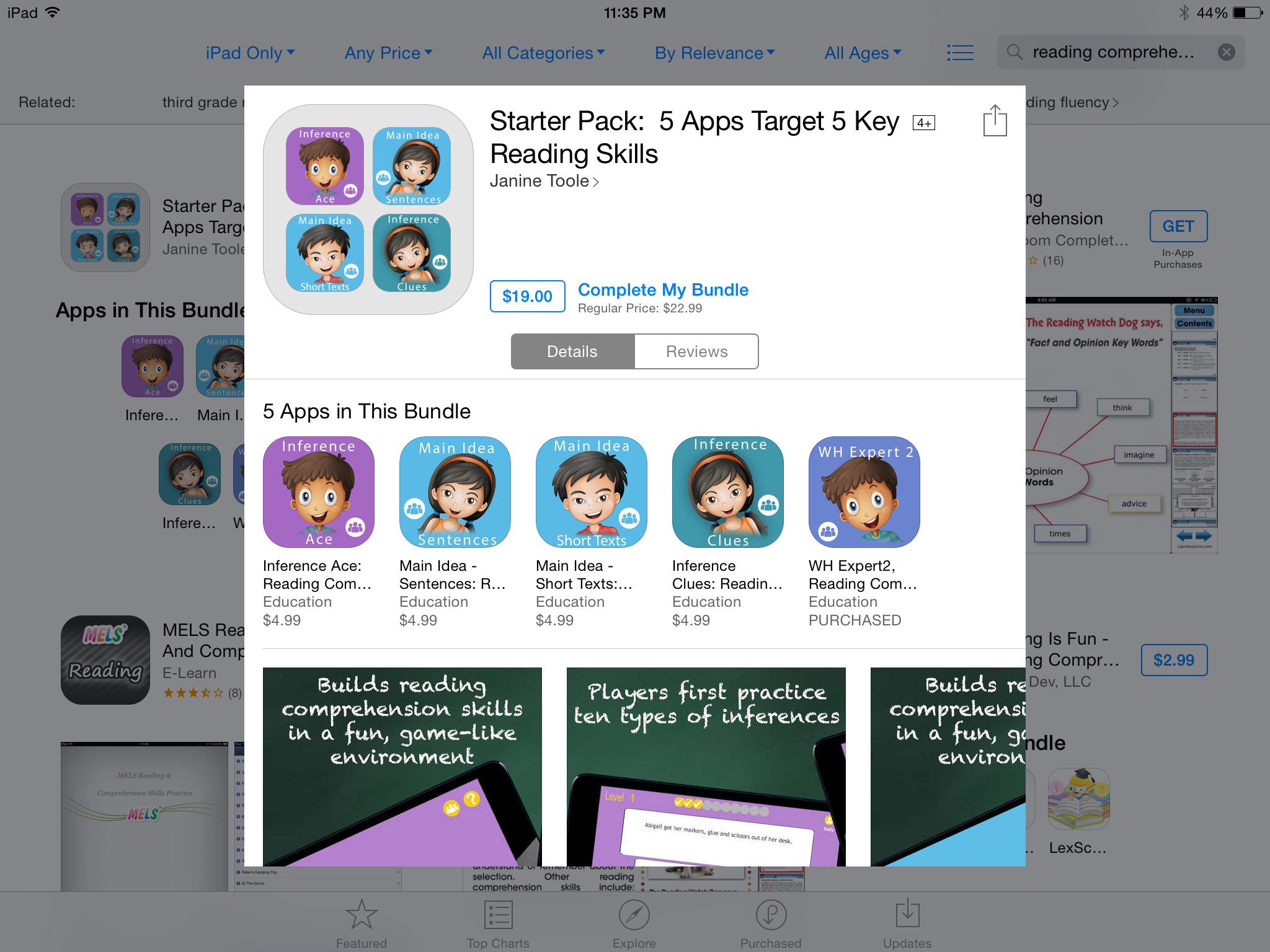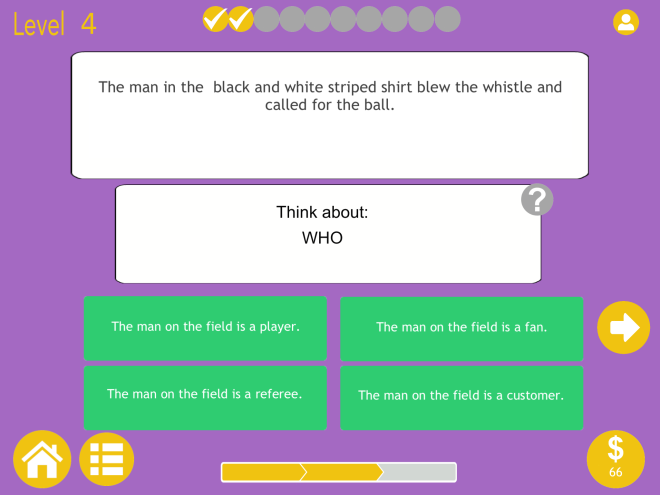
What’s on our iPad: Reading Comprehension Edition
I used to think that we are all inherently good or bad at things. But after hearing Temple Grandin speak in Fargo a few years ago explain her strengths and weaknesses in math (how she was terrible at algebra and fantastic at geometry), it made me see “subjects” and “challenges” in a whole new way, and it helped me understand J a little bit better.
J is an amazing speller–he always has been. Before he could really talk, he could spell words, not just easy words like “cat” and “dog.” He could spell “dinosaur” and “Hy-Vee-Food & Drug” and “Old Navy” and “octagon.” When he was three. He loves grammar and usage–so much that he will take a pen and scribble out the misspelled words and bad grammar on Mac and Cheese boxes or other “poor English/cutesy English” marketed items. He loves the thesaurus and homophones and antonyms and palindromes. He will kick your trash at Scrabble.
But he is absolutely terrible at reading comprehension. Since he doesn’t cooperate with state testing, and since we’ve never gotten an “accurate” reading on his strengths and weaknesses (mostly because he doesn’t want to do the test and he’ll guess random letters like A, D, D, C just to get the test done), I’ve been trying to pinpoint a little better where his strengths and weakness are. I found a few websites for practice Common Core test prep and we’ve done a practice test almost every day this past month. I started at grade 2 just to gauge where J is using this test website: prepdog.org.
The questions are shorter, and it allows him to develop better test taking skills. The tests aren’t good but not perfect. There are some spelling mistakes (which J is quick to point out). Sometimes there are really badly worded questions, but by going through this, I realized that standardized testing might not be as evil as I once thought. It’s allowed me to notice trends in J’s strengths. Believe it or not, he focuses on feelings in the story (at grade 2 this is pretty easy to find in the text). I’m guessing because he’s had so much therapy on that. He does really well at short paragraphs with once central idea–something I wasn’t sure he was able to do. He DOES NOT know the difference between fact and opinion. He CANNOT make very good inferences. He has a hard time with sequences and steps (what did Jimmy do before he picked up the pen).
By serendipitous luck, I stumbled on these great reading comprehension apps for J, and they’ve been really good for him. They target specific areas of reading comprehension: fact v opinion, inferences, main ideas, etc. As I’m learning more and more with J, we have to teach him the pieces of the puzzle first before he can put it all together. I really love these apps for J. I’ve learned through trial and error what apps work best, the most important being no “games.” No “cutesy characters” or bells and whistles. He loses all focus on the assignment and will start perseverating on the games. Second, no repetitive, predictable programing. He figures that out really quickly and starts to fixate on the patterns and then will perseverate on the program itself and not the content. Scholastic’s Read 180 is terrible for him because of the repetitive, predictable nature of it. He likes to get things wrong on purpose because the computer will talk back to him every time.
There is very little repetition in these apps. They will ask you to read the same passages or sentences again, but every time they ask you a different question about the passage. Which is great! Because J actually has to read the question and think about it instead of memorizing the answer after the first time. I love it from an English perspective because it shows you that you can read the same passage multiple times and get different things out of it every time. It was so funny to see the look on J’s face when he figured out that the same sentence could mean different things 🙂 Here are some of the screen shots of the various apps. We’re still at the beginner levels because that’s where he’s at comprehension-wise. But I know over the next couple of months he’ll figure it out pretty quickly. They might not be for every kid with autism, but they’ve been sure working well for J.
The apps are by Janine Toole (here). We started by the free downloads.
Here are some screen shots of each individual app:
WH2
Fact Opinion
Inference Ace
Inference Clues
Main Idea Sentences
We don’t solely rely on the apps for reading practice, of course. We still read a novel together every day. I still print off the prepdog tests so he can practice a test on paper. Just one more tool in our arsenal of learning.
What reading apps or reading strategies do you like?









